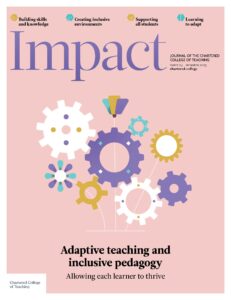JESSICA JOHNSON, HEAD OF PROFESSIONAL DEVELOPMENT PROJECTS, UNITED LEARNING, UK
SARAH HORN, DIRECTOR OF SEND (SECONDARY), UNITED LEARNING, UK
Over the past decade, the landscape of special education provision in England has changed significantly. In the nine years to 2023/24, the number of children with education, health and care plans rose by 140 per cent. This increase was seen in all areas of England, regardless of other demographic factors (Isos Partnership, 2024). Meeting the needs of the growing number of children with identified SEND (special educational needs and disabilities) in mainstream schools will require a shift in leaders’ thinking and decision-making. The Education Endowment Foundation (EEF) report ‘Making best use of teaching assistants’ found that ‘the typical deployment and use of TAs [teaching assistants], under everyday conditions, is not leading to improvements in academic outcomes’ (Sharples et al., 2015, p. 11). It provided a call-to-action for sc
Join us or sign in now to view the rest of this page
You're viewing this site as a guest, which only allows you to view a limited amount of content.
To view this page and get access to all our resources, join the Chartered College of Teaching (it's free for trainee teachers and half price for ECTs) or log in if you're already a member.











